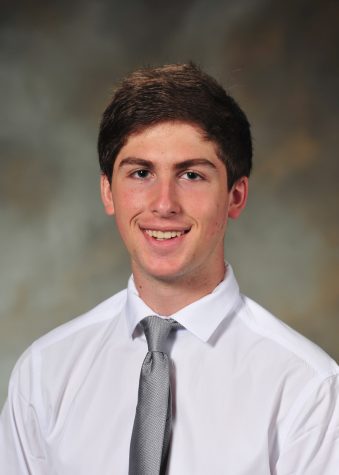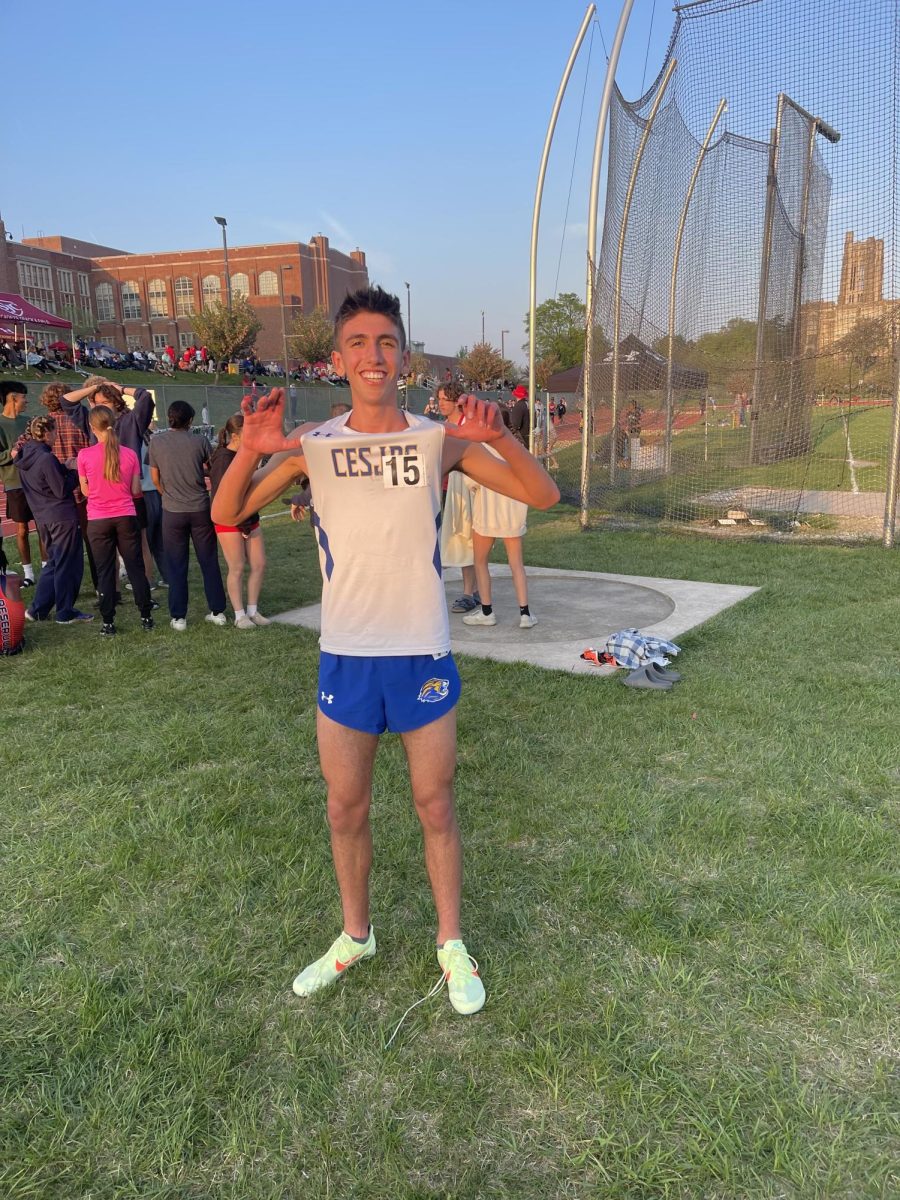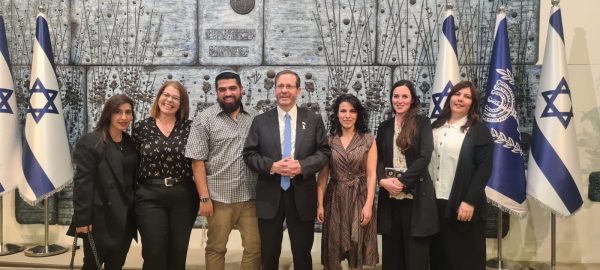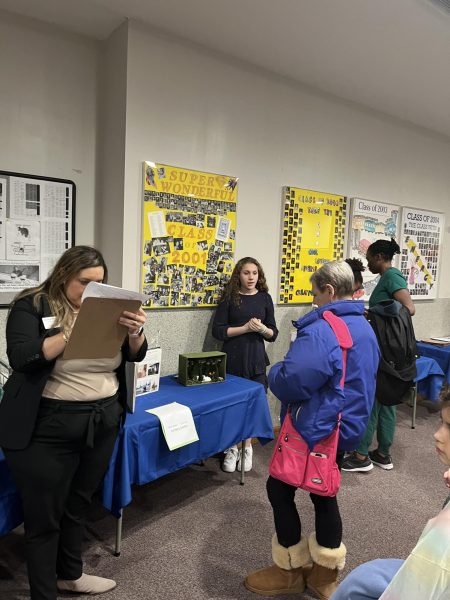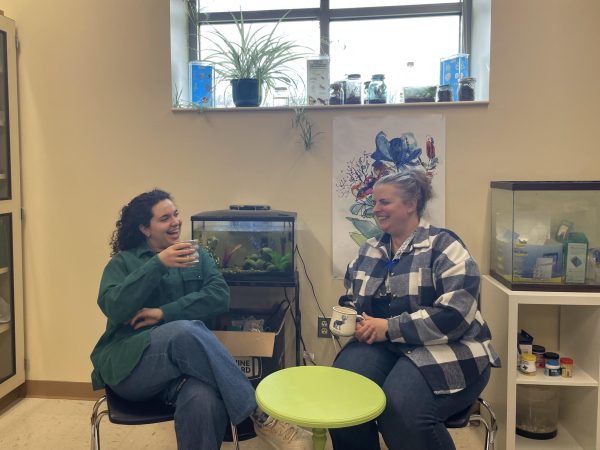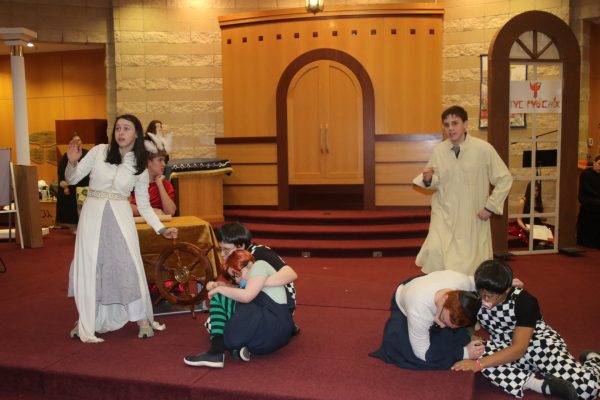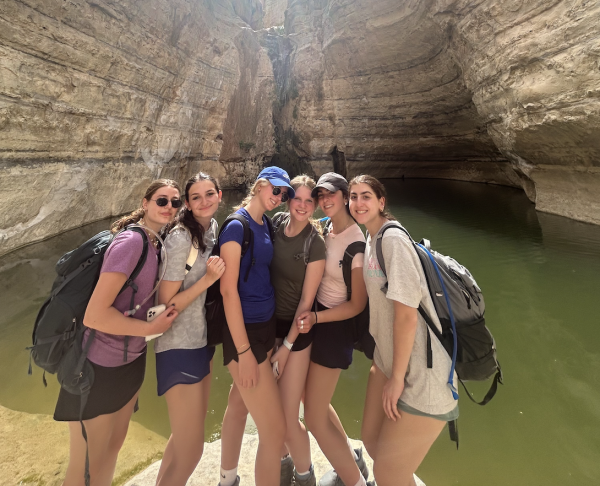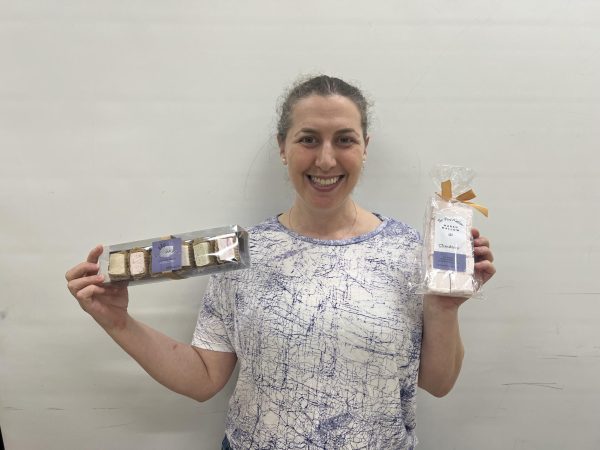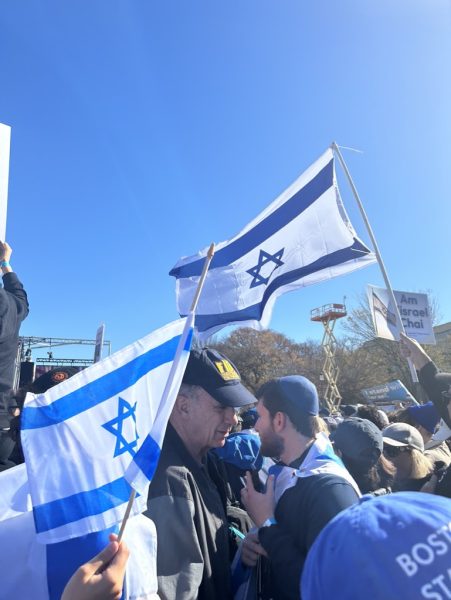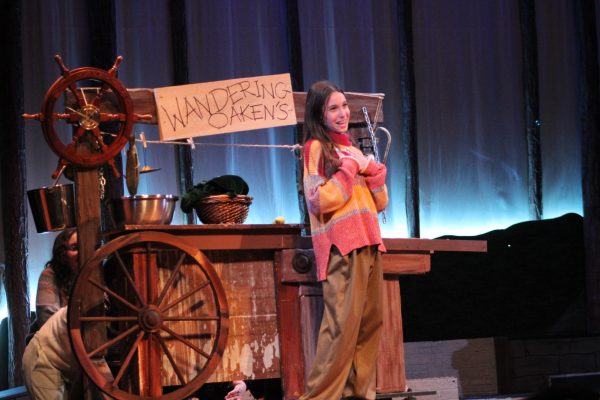Minchah cards draw full house
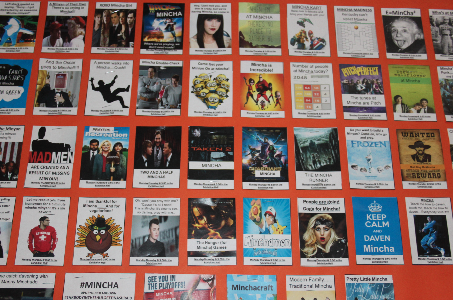
Minchah cards are used to encourage attendance at the afternoon prayer service.
January 21, 2016
During almost every lunch period and after school ends, Educational Support Specialist Brett Kugler can be seen handing out “Minchah cards” to students throughout the school.
Kugler has been involved with Minchah, the traditional Jewish afternoon service, since he first came to JDS ten years ago and immediately noticed that there was a lack of attention being paid to the service.
He designed fliers to put up around the school to get students to come to the service, but then decided to create more personalized Minchah cards to incentivize attendance.
The success of this advertising was immense, with an estimated average of 50 students coming to Minchah each day at that time. However, after two or three years of handing out cards, Kugler began teaching after school at Kol Shalom Talmud Torah in Gaithersburg, MD and had to stop attending Minchah at JDS. When Kugler stopped going to Minchah, the Minchah cards disappeared from JDS as well, and the service continued, but with diminishing attendance.
Last year, Kugler became the youth director at Young Israel Shmorai Emunah in Silver Spring, MD and was able to resume attending Minchah services at school. Since Kugler was disappointed with the low student turnout, he decided to resume the Minchah card system in attempt to boost attendance. Still, the service occasionally struggles to meet the ten male requirement in order to form a minyan. Kugler, however, is optimistic that the direct approach of minyan cards will eventually boost student attendance.
“The ability to invite someone personally makes people feel like they really are needed and have more of a connection to the service and an opportunity to be a part of something,” Kugler said.
The importance of inviting all students is reflected in the makeup of the group of people who attend Minchah services. There are students from many different Zmanei Kodesh, and several faculty members attend as well. This diversity of students at Minchah is something in which Kugler takes great pride.
“Something I really enjoy about it and look forward to getting to see: who’s gonna come today, who’s gonna step up and be a part of something and who’s gonna experience it on a daily basis and who’s gonna experience it for the first time and say ‘You know, wow, that wasn’t what I thought it was and that was awesome,’” Kugler said.
One student who had this type of experience was senior Yoav Margolis. Margolis did not want to go to Minchah at first but was persuaded to come one day when they needed to make a minyan. He went the next day and it soon became a routine for him.
“I grew to love going to Minchah because I really enjoy the group dynamics and how I got to see some friends of mine before I left the school,” Margolis said.
In addition to the opportunity to participate in a Minchah service, Margolis enjoys the welcoming atmosphere at Minchah services. The respect shown by the students towards one another is what Margolis believes creates the open environment and community.
“At Minchah, if you participate, it’s not because you’re forced to but because you want to,” Margolis said. “It creates an environment where people can stand up.”
Eighth-grader Ellie Schwartz also appreciates the inviting nature of the Minchah service. Schwartz first came to Minchah this year after hearing Kugler call out in the hall for people to join, and she has since come almost every day.
Schwartz, who attends the Masorti minyan, has enjoyed the extra opportunity to pray during Minchah. For her, however, one main difference between her morning minyan and the Minchah service is that she tends to be one of the few female students in attendance at Minchah.
Schwartz had hoped that her coming to Minchah would encourage more girls to come, yet does not view the lack of females as a major problem.
“I think no matter what, the experience is my experience and shouldn’t have to do with the people around me,” Schwartz said.
Jewish Text teacher Paul Blank is one of several faculty members who try to come to Minchah every day. In the past he came to Minchah only occasionally, but he has begun to attend regularly to say the mourner’s
kaddish since his mother passed away in October.
The community at Minchah has helped Blank greatly during this time and he is very grateful to those who give up their time to come to Minchah so that he is able to say kaddish every day.
“It’s very important for me to say kaddish and I probably wouldn’t be saying it three times a day if it weren’t for this minyan here,” Blank said. “I want to say it three times a day so it works out great.”
While the original goal of the Minchah service was not to provide such an opportunity for teachers, it is an example of the various benefits which have come about from the presence of Minchah at JDS.
“Something is special about Minchah,” Kugler said. “Everybody has to pick something during the morning, here’s an opportunity where it is one’s choice. Not everybody in the Minchah is coming from an orthodox background, but they come together and find a way to connect.”


